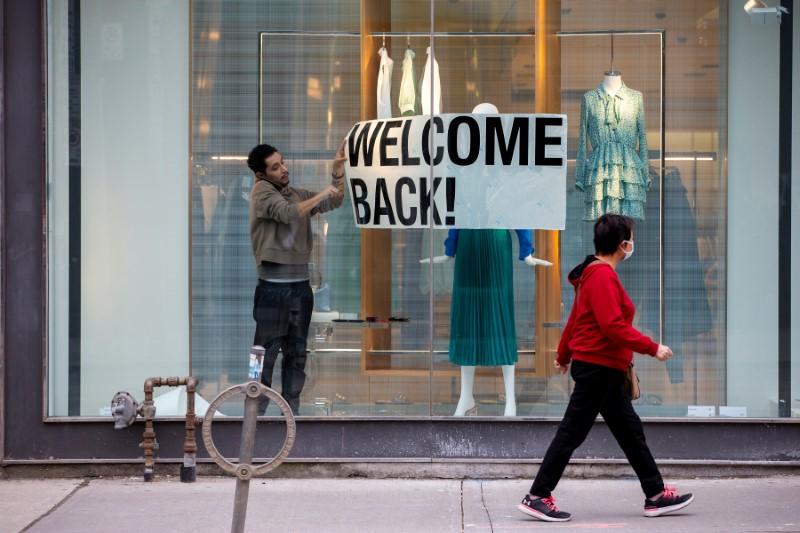OTTAWA—The Canadian economy is showing green shoots with reports on home sales, consumer spending, and new job postings trending upwards after the coronavirus pandemic forced shutdowns and caused a record plunge in economic activity.
The Bank of Canada held its key interest rate steady on Wednesday, noting the impact of COVID-19 appears to have peaked and saying it now expects the Canadian economy to resume growth in the third quarter.





